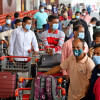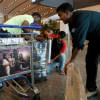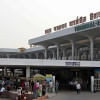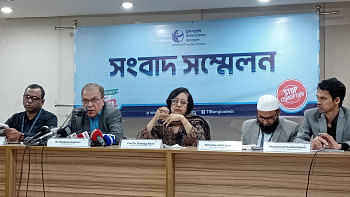A welcome move for migrant workers

We applaud the opening of an exclusive lounge for migrant workers at the Hazrat Shahjalal International Airport in Dhaka. Long demanded by migrants to ensure seamless journey, this step by the interim government aligns with other reassuring measures it has taken since August 8, including securing pardons for 57 jailed Bangladeshi migrant workers in the United Arab Emirates (UAE) and initiating talks with Malaysian authorities for re-recruiting Bangladeshi workers.
Reportedly, migrant workers, whose remittances form the backbone of Bangladesh's economy, are often subjected to neglect and harassment at the airport. Although fancy displays were installed inside the airport during the last regime, hardly any arrangements were made to ease migrant workers' travel experience. Many workers travel from remote parts of the country, enduring long journeys and the anxiety of venturing abroad, only to face unkind treatment from airport staff upon arrival. The same poor reception greets them when they return home.
The newly opened lounge provides much-needed rest and relief for the workers—before they embark on another long and sometimes hectic journey—as well as subsidised snacks priced lower than the typically overpriced airport food. Moreover, 100 volunteers sponsored by the International Organization for Migration (IOM) will assist them at the airport. These efforts, however, should not diminish the need for training regular airport staff to ensure better treatment for our remittance earners.
Given that remittances are one of our primary sources of foreign currency, it is extremely important for the government to prioritise this sector, especially in light of the country's foreign currency debt. Authorities should also address other key issues faced by migrant workers including high cost of migration, recruitment irregularities, wage theft, abuse by foreign employers, and inadequate support from Bangladeshi missions abroad. Expanding into new labour markets through diplomacy, or expediting recruitment in established ones like Malaysia and UAE, should remain our priorities, but not at the cost of workers' rights.
We hope the government will continue to take meaningful steps to support them in their journey to earn remittances, and ensure that they are treated with the respect and dignity they deserve, both at home and abroad.

 For all latest news, follow The Daily Star's Google News channel.
For all latest news, follow The Daily Star's Google News channel. 









Comments